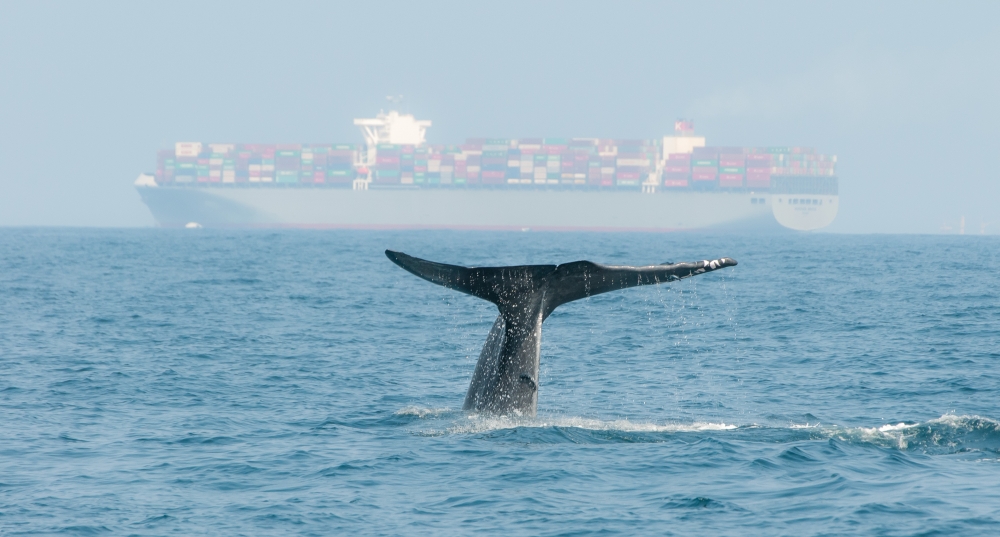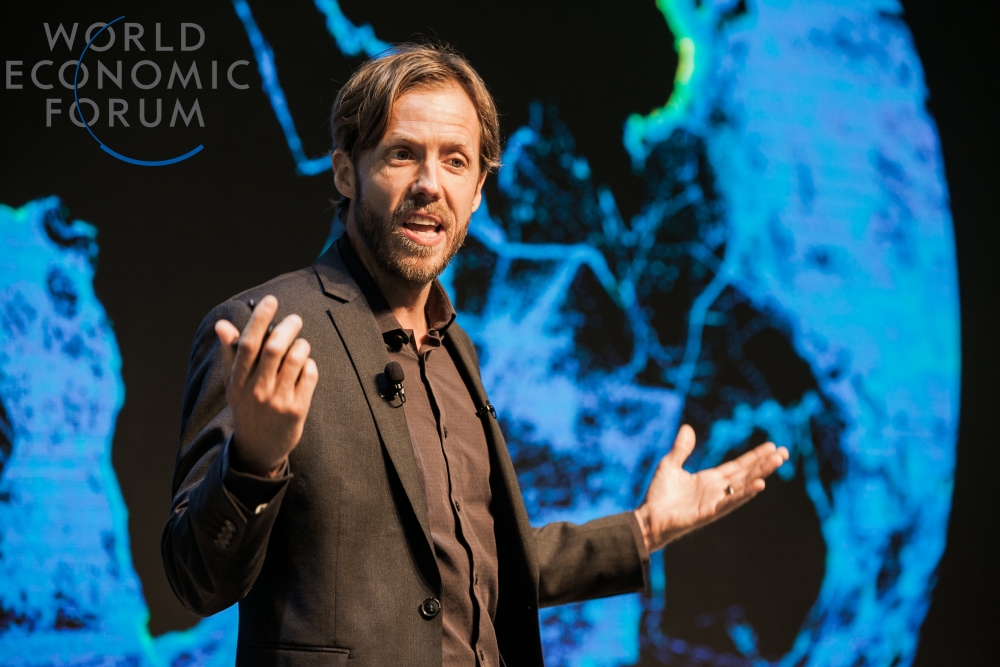
Save the Whales

It’s an image nobody wants to see: The body of a majestic blue whale, lying limp over the bow of a massive cargo vessel, or washed up on a beach, fatally wounded from what’s commonly known as a “ship strike.”
The collisions have become all too frequent, as ship traffic proliferates along migratory whale routes and feeding areas. Reports of whales being struck and killed in such impacts have increased dramatically in the past 50 years.
Hoping to mitigate this growing problem, the Benioff Ocean Initiative at UC Santa Barbara has committed $1.5 million to accelerate research aimed at finding and implementing new solutions to curtail ship strikes and reduce whale mortality.
The project is the first in a series of research-based ocean solution campaigns that will be run by the Benioff Ocean Initiative. The initiative began this inaugural effort by releasing a global call for ocean scientists and technologists to submit proposals for seed funding to identify innovative resolutions that will meaningfully reduce ship collisions with whales. Organizers expect many of the resulting ideas will involve the design or adaptation of new technologies that can be replicated across the globe.
“I think this is an incredibly important problem to address,” said Douglas McCauley, director of the Benioff Ocean Initiative and an assistant professor in UCSB’s Department of Ecology, Evolution and Marine Biology. “These collisions are impacting some of the most endangered and spectacular whales on the planet.”
Ship strikes are cited as a top source of mortality for a variety of at-risk whale species and are believed to be a major obstacle in preventing their population recovery. On the west coast of the United States, blue whales are of particular concern in vessel strikes, due to their large size and tendency to seasonally aggregate in feeding grounds.
“Blue whales are the largest animal that has ever lived — they are bigger than the dinosaurs,” McCauley said. “They pump blood with a car-sized heart through arteries that are large enough for a diver to swim through. This is an animal whose future we want to protect.”
Researchers estimate that 10 blue whales were killed every year during the late 2000s in the Santa Barbara Channel alone — a matter of major consequence for a species whose population today is just 3-11 percent of their historic, pre-industrial whaling abundance. Losses of these marine megafauna are significant, as whales play important ecological roles as movers of nutrients, consumers of prey and engineers of marine ecosystems.
The Benioff Ocean Initiative was founded in 2016 with an initial gift of $10 million from Lynne and Marc Benioff, the chairman and CEO of Salesforce. The experimental enterprise aims to combine university researchers, students and global ocean communities to identify problems and solve them with emerging technologies.
The announcement of the whale collision project, made today at the opening of the World Economic Forum center in San Francisco, reflects part of the ongoing collaboration between UCSB and the Forum to advance ocean change.
“We want to advance marine research, but we also want to put this science directly to work on behalf of ocean health,” McCauley said. “No captain out there wants to crash into a whale. Shipping companies, marine biologists, fishermen, port authorities — everyone is on board about the value of developing smart new ways to reduce these unnecessary collisions.”
By both crowdsourcing the selection of projects from ocean communities and the best scientists around the world, the Benioff Ocean Initiative hopes to have a unique impact on the ocean problems that people care most about. The problem of vessel strikes of whales was raised multiple times in the crowdsourcing campaign.
“We are excited to see the first commitment of the Benioff Ocean Initiative at UC Santa Barbara begin to take shape,” said Pierre Wiltzius, the Susan & Bruce Worster Dean of Science and executive dean of the College of Letters and Science at UCSB. “This initiative is the first of its kind, and its innovative use of crowd-sourced input from a globally diverse community is something we are proud to support. We see this as an incredible opportunity for our university to use our leadership in marine science to generate positive and lasting change for our oceans.”



